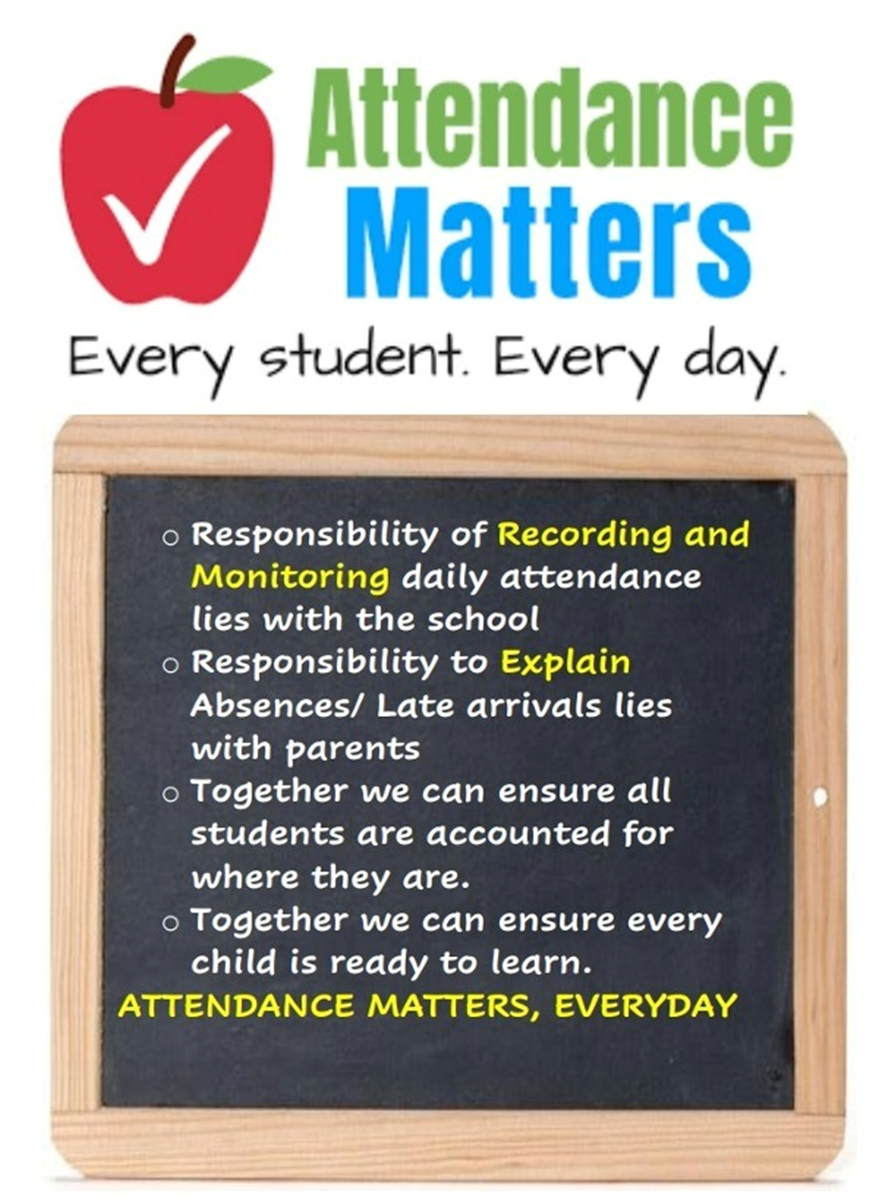SCHOOL ATTENDANCE

Same-day notification
Student Absences
Parents/Carers, if your child is going to be absent or late, you are required to notify the school early in the morning on the day of absence so your child's absence can be recorded correctly.
You can do this by;
- Calling the School Absence Line OR
- Adding a parent note on Compass OR
- Emailing the Sub School Assistants
Notifying the school of your child’s absence either prior to, or on the day that they will be away, helps ensure the safety and wellbeing of children and will fulfil your legal responsibility.
All schools need to know when and why a child is absent and parents/carers need to know if their child is not at school. Prompt communication also promotes daily school attendance.
For further information on the processes and procedures our school uses to record, monitor and follow-up student attendance and absence please read our Attendance Policy.
School Is Better When You’re Here!
We encourage every student, when they are well, to come to school every day so as to maximise their learning outcomes and to support their success now and beyond school.
Evidence suggests students who attend school more often achieve greater academic achievement and increased post school opportunities.
Every day of absence makes a difference. The effect of one day of absence, while relatively small, adds up quickly as more and more days are missed. The effect of missing days accumulates over time – school absence not only impacts achievement in the year in which the days are missed, but in future years as well.
We do appreciate there are times where absence is necessary, and we certainly do not want students attending school when they are ill.
If it is expected that your son/daughter will be away for more than two days (illness, family holiday, medical appointments etc), please communicate this information with the relevant Sub School Office.
We also ask that you are regularly checking your Compass Parent Portal and approving unexplained absences. A medical certificate should also be provided for extended illnesses.
Tips to help improve your child’s attendance
- Talk to your child about school and how important it is. You can ask them how they feel about school, what they like and if there are any problems.
- Reward good behaviour and not bad behaviour. For example, if your child refuses to go to school, do not let them have access to their phones or the internet.
- Set a good example. Show them how you keep to your own commitments.
- Encourage your child to take on hobbies that your child enjoys such as sports and clubs. This will help them develop positive relationships outside of the classroom.
- Have a set time to do homework and go to bed.
- Leave all technology out of their bedroom.
- Pack their school bag the night before with everything they need.
- Have a set time for breakfast.
- Plan to meet up with a friend so they can travel to school together.
Students who REFUSE to go to school
School refusal is when children get extremely upset at the idea of going to school and often miss some or all of the school day. This distress doesn’t go away.
There’s rarely a single cause of school refusal. It might be linked to anxiety or worries about leaving home, a phobia, learning difficulties, social problems at school, or depression.
School refusal might start gradually or happen suddenly. It can happen at the same time as or after:
- stressful events at home or school or with peers
- family and peer conflict
- starting or changing schools
- moving home
- bullying or teasing
- conflict with a teacher
- poor school results
By not going to school, a child might be able to:
- avoid scary things – for example, tests, certain teachers, the canteen and so on
- get out of social situations with peers or teachers
- keep an eye on what’s happening at home – example, if a family member or pet is unwell
The best way to get your child back to school is to speak with your child’s Home Group teacher, Year Level Coordinator or Student Wellbeing Team.
It’s important for your child to go to school while they’re getting help with the issue that has caused the school refusal.
When your child goes to school, it builds their confidence and resilience. It keeps your child connected with learning, and it’s important for social development. It’s often easier for children to return to school if they haven’t been away from school for too long.



